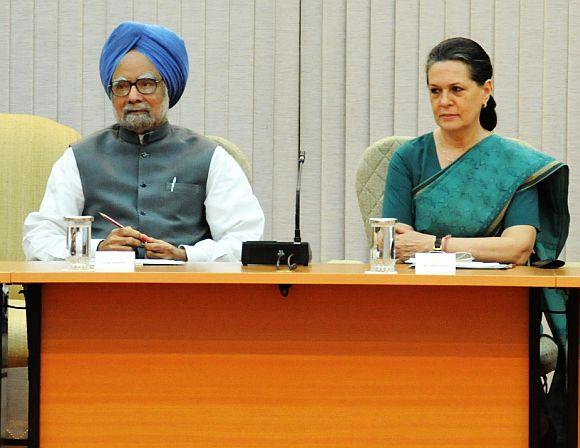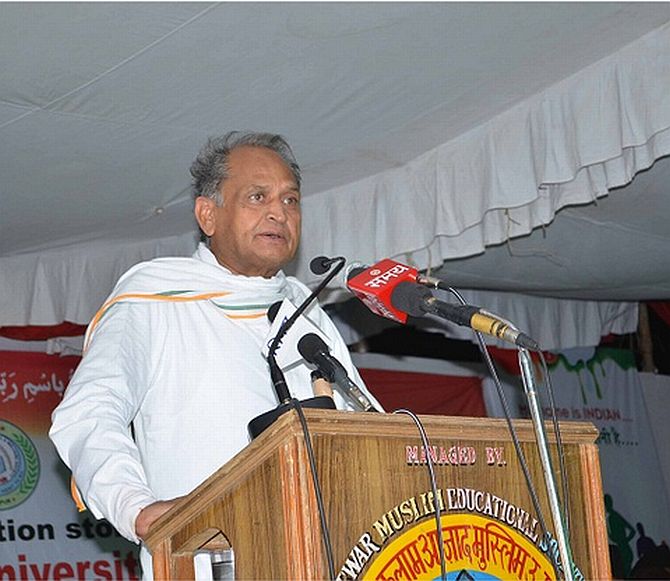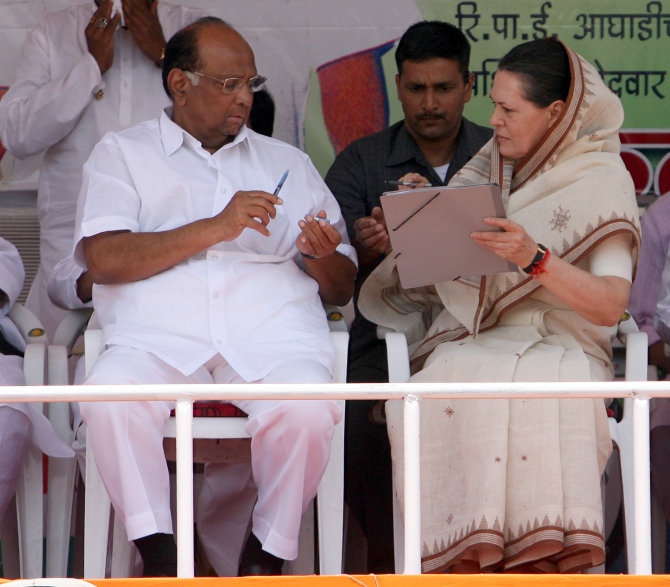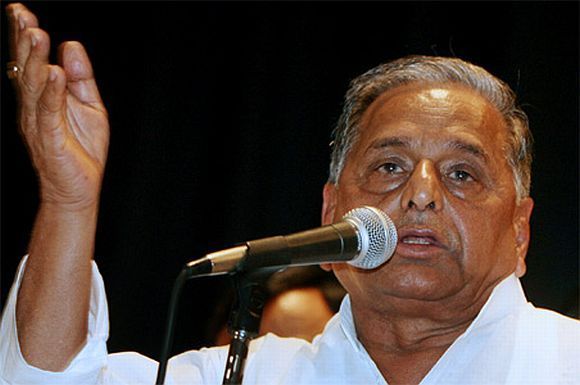
If the poll surveys pointing to a near-whitewash for the Congress in the five assembly elections are any indication, the United Progressive Alliance government it heads will find it increasingly difficult to govern, as it will now have to contend with an aggressive opposition and far more assertive allies. The situation is unlikely to improve even after the session ends as the looming 2014 Lok Sabha elections will reduce the UPA to a ‘lame duck’ government, feels Anita Katyal
The Congress-led UPA government will feel the immediate effect of the election results in the winter session of Parliament which opens on Thursday. The confrontation between the ruling alliance and the principal opposition party, the Bharatiya Janata Party will escalate next week after the declaration of the election results on December 8.
If the BJP manages to retain Madhya Pradesh and Chhattisgarh and dislodge the Congress in Rajasthan and Delhi as predicted by the poll surveys, the saffron party will declare an all-out war against the ruling alliance, making it impossible for it to conduct any legislative business in Parliament.
The situation is unlikely to improve even after the session ends as the looming 2014 Lok Sabha elections will reduce the UPA to a ‘lame duck’ government.
The Congress, however, put up a brave face on Wednesday, stating that the situation is not as bad as it is being made out by the media and pollsters.
“Let’s wait for December 8 when the results are declared,” remarked a senior member of the Congress Working Committee even as most senior party leaders refused to go on record on the findings of the poll surveys.
In fact, the Congress is hoping that the poll predictions will be proved wrong in the case of Chhattisgarh where, it believes, it could scrape through. The party also believes it has an outside chance in Rajasthan where its Chief Minister Ashok Gehlot has worked tirelessly to improve his government’s image by implementing its various welfare schemes.
...

“We need to win in at least two states to stay in the fight,” a senior Congress minister told rediff.com. A two-state victory, he said, will embolden the Congress to launch an offensive against the BJP and rubbish its claims about its prime ministerial candidate Narendra Modi’s mass appeal.
On the other hand, a wipe-out obviously does not augur well for the Congress as it raises serious doubts about party vice-president Rahul Gandhi’s leadership qualities and popularity since it was the Nehru-Gandhi scion who led the party’s campaign in these elections.
On the other hand, a victory in the four states will be a morale-booster for the BJP in general and Modi in particular, as the parties begin preparations for a crucial general election next year.
Although past experience has shown that the results of assembly elections are not necessarily a reflection on the Lok Sabha polls, these do give an indication about the prevailing mood of the electorate.
Dismissing an adverse outcome in these state elections as a “local affair”, the Congress has also maintained that it will be able to put its house in order in the remaining four months before next year’s general election.
It is hoping to boost its electoral prospects by giving a push to economic reforms and the stalled infrastructure sector and the implementation of its various pro-poor schemes, such as the Right to Food programme.
But a one-sided election result will make it all the more difficult for the UPA government to resort to such a course correction as its own allies will then be snapping on its heels.
...

There is a growing fear in Congress circles that partners such as the Sharad Pawar-led Nationalist Congress Party, the Dravida Munnetra Kazhagam, the Samajwadi Party and the Bahujan Samaj Party will become more assertive, making it difficult for the ruling alliance to take decisions.
One scenario being contemplated is that its allies and supporting parties may even force an immediate election although the 2014 Lok Sabha poll is due in April.
“The reaction of our allies will be critical --- particularly if we fare as badly as has been predicted by all the poll surveys,” a senior member of the CWC recently told rediff.com.
It is acknowledged by Congress leaders that its popularity ratings have hit an all-time low, having come under fire for the rise in prices of essential commodities, poor governance and a series of corruption cases. It is, however, hoping that their shared antipathy towards Modi will push the secular parties to band together.
If the assembly results reaffirm that the Congress is steadily going downhill, it is only to be expected that its allies will start demanding their pound of flesh. Although NCP chief Sharad Pawar may be tempted to jump ship given his prime ministerial ambitions, he may be forced to go slow on his party’s divorce proceedings with the Congress as the two parties run a coalition government in Maharashtra.
Neither of them can afford to go their separate ways as it would be tantamount to handing over the state to the BJP-Shiv Sena combine. But the NCP will push for a hard bargain when the two partners begin seat-sharing negotiations for the Lok Sabha elections. Pawar will also have his way on policy decisions on issues like sugar pricing which are of interest to him.
...

Similarly, DMK chief M Karunanidhi could re-evaluate his party’s relationship with the Congress after the assembly election results.
The DMK-Congress combine had done spectacularly well in Tamil Nadu in the 2004 and 2009 Lok Sabha polls but this alliance was literally mauled by J Jayalalithaa’s All India Anna Dravida Munnetra Kazhagam in the last assembly elections.
The DMK is yet to recover from that electoral shock even as Jayalalithaa’s position remains unassailable. However, the DMK will only be ready to join forces with other regional parties if its political rival, the AIADMK, is out of this grouping.
On the other hand, realpolitik may dictate otherwise and force the DMK to continue its relationship with the Congress.
This could happen if the DMK fails to recover lost ground in its home state in the run-up to the next Lok Sabha polls.
The DMK had walked out of the UPA earlier this year on the Sri Lanka issue but it did not break all ties with the grand old party. The two parties warmed to each other when the Congress supported Karunanidhi’s daughter Kanimozhi’s candidature in the Rajya Sabha.
Prime Minister Manmohan Singh deferred to Karunanidhi’s appeal recently by staying away from the Commonwealth meeting in Sri Lanka.
Of the others, the SP and BSP have been extending crucial outside to the UPA government. Although there is no possibility of the Congress entering into a pre-poll alliance with the SP or the BSP, the grand old party is hoping to have an informal electoral understanding with either of the regional players as they have a common goal to stop Modi from marching ahead.
However, relations between the Congress and the Samajwadi Party have come under a strain after the Muzaffarnagar riots while SP chief Mulayam Singh Yadav views himself as a prime ministerial candidate. BSP chief Mayawati has already declared she will not have an pre-poll alliance with any party.
...